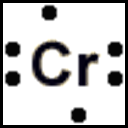

Sarin Gas: Pesticide to Chemical Weapon
By: Christopher Cassetta
Sarin is a man-made chemical weapon originally developed in Germany as a pesticide, but is now quickly becoming world- renowned for its use against the citizens of Syria in a recent attack. It is a nerve gas that affects the body in various ways, starting with twitching and jerking in the muscles to loss of consciousness, paralysis, and finally death. My initial reaction to hearing about its effects was one of disgust, how could people have created something so vile? I began to also get a feeling of curiosity as I wondered; how exactly does it work, and what makes it so lethal to humans?
Sarin’s lethality is due to its molecular structure. Once the nervous system sends a signal to a muscle affected by sarin, the molecule will attach to the “Off-switch” of the nerve ending, preventing the signal from ever being turned off. This causes uncontrollable muscle movement, and eventual exposure to the heart and lungs will quickly cause death. It is also made dangerous by its other features. It is an odorless, colorless gas that can seep through the skin, with the lethal dose being 1 milligram. Let’s put this into comparison: The lethal dose of Cyanide is 1.5mg per kg of body weight; meaning that the same 77 kg (@170 pound) person needs a total of 51-52 mg of cyanide to kill, but only one milligram of Sarin.


![]()
![]()
Sarin may be difficult to cure, but not impossible. If treatment of Pralidoxime is received in time, one could be saved. It works by separating the Sarin from the actual chemical that transmits electrical signals to nerves. Because it is a P-F bond, it can be easily broken by nucleophilic agents such as water and hydroxide; the main components of Pralidoxime. But how could one survive long enough to get the antidote? A charcoal and coconut infused gas mask filter works best to keep Sarin out. They work by absorbing the chemical, and their large surface area prevents it from getting through to your lungs and heart.
This is all very frightening, in my opinion. How could we stop an attack of Sarin bombs? How many would die in such a horrible way? Should we fight back and attack Syria with conventional bombs? These are all questions that the U.S must consider before launching their attack. We know how Sarin works, and its creation is outlawed in most countries, but would getting involved and stopping the Syrian government from using it be worth an all-out war? I think so. Knowing what I know now about its effects, how hard it is to survive contact with it, and who it was used on, I believe the only choice we have is to fight back. It is way too brutal and dangerous to keep ignoring.
I don’t only think this is a big deal for our generation- this is only the beginning. As more and more people come up with better, more efficient ways to create chemical weapons, more and more will be created. Countries with little military funding will find Sarin and gases like it weapons of choice because they are easy to get ahold of, readily available, and they’re much cheaper than conventional bombs. The Syrian event really marks the start of a new type of warfare, where Sarin is really just a stepping stone on the path to even more lethal chemical experiments.
Sources
http://articles.philly.com/2013-09-05/news/41769034_1_nerve-gas-nerve-cells-key-enzyme The agony of death by sarin nerve gas - Philly.com Featured Articles from Philly.com
http://www.cdc.gov/niosh/ershdb/EmergencyResponseCard_29750001.html CDC - The Emergency Response Safety and Health Database: Nerve Agent: SARIN (GB) – NIOSH Centers for Disease Control and Prevention
Pictures:
http://en.wikipedia.org/wiki/Sarin